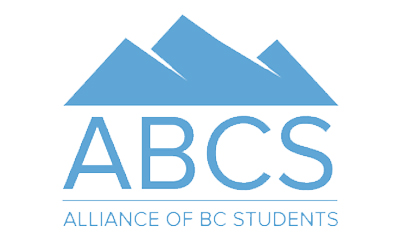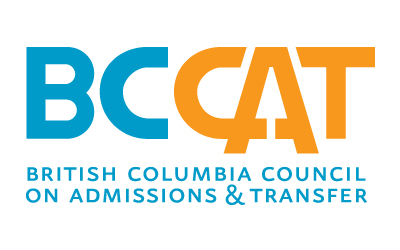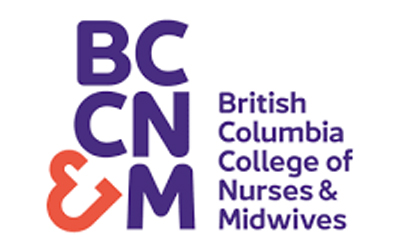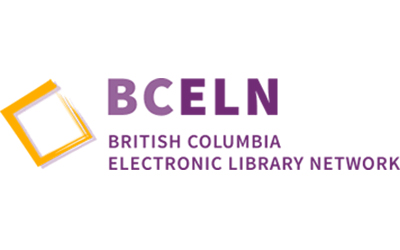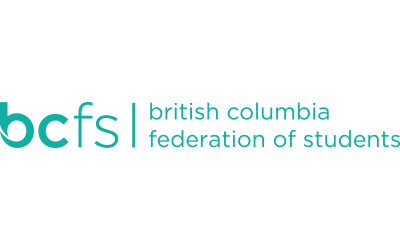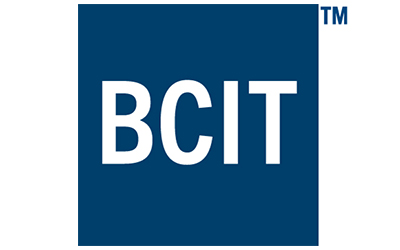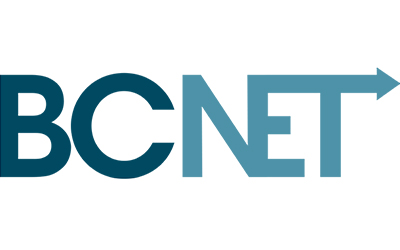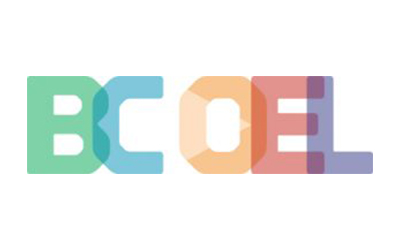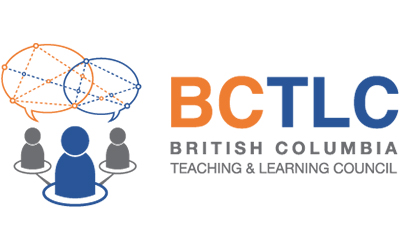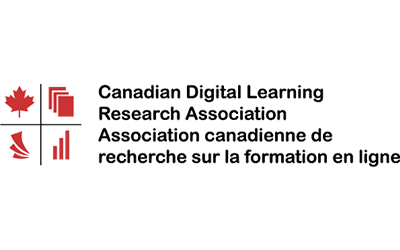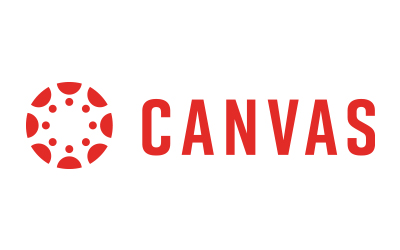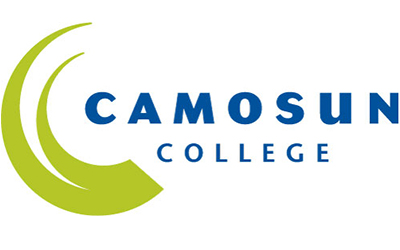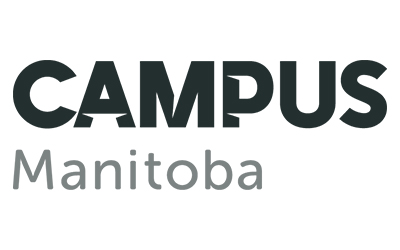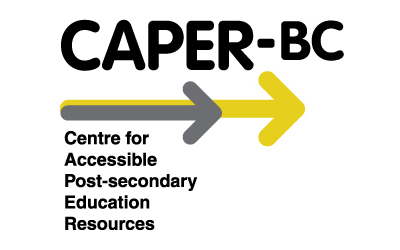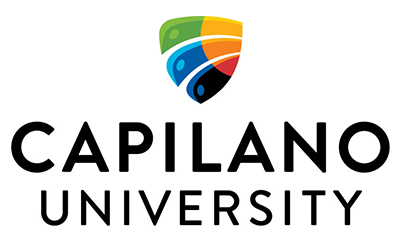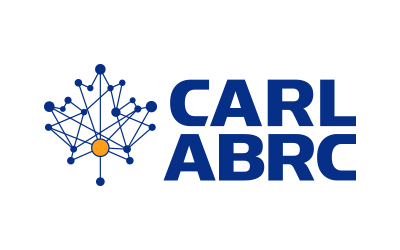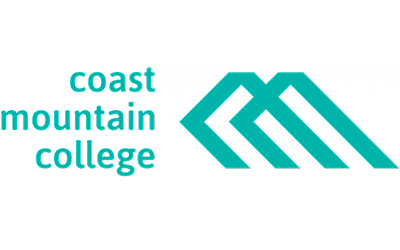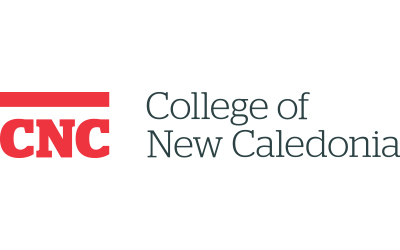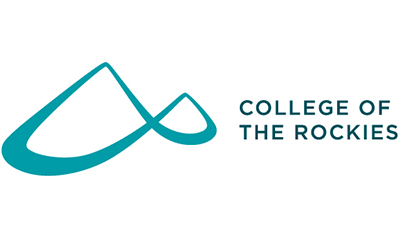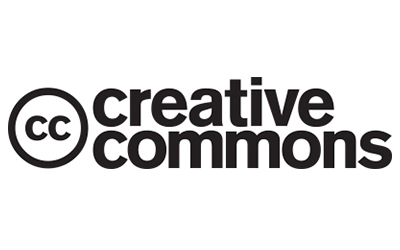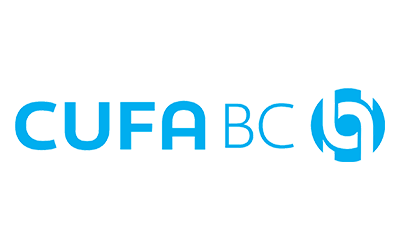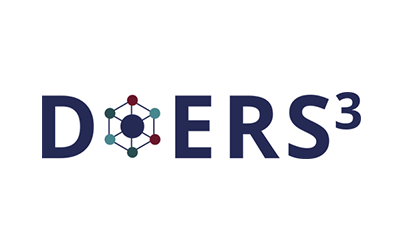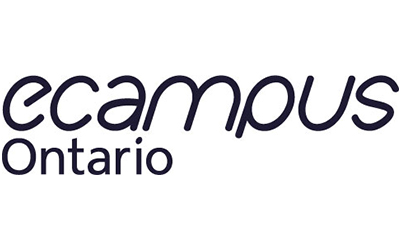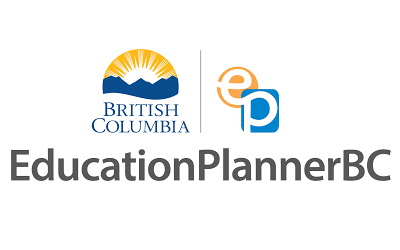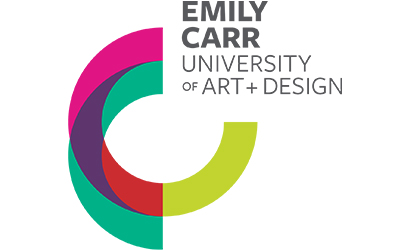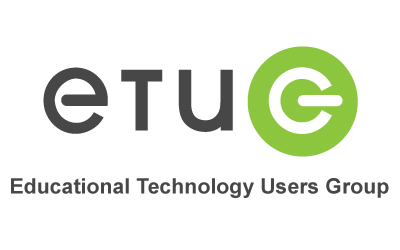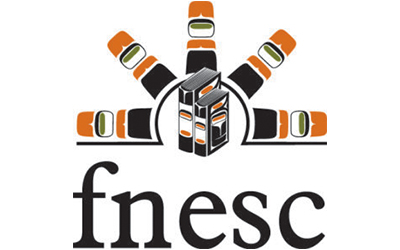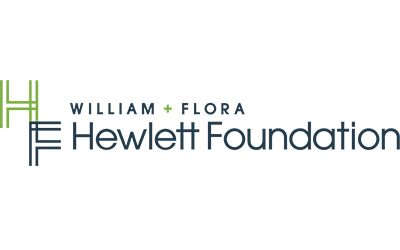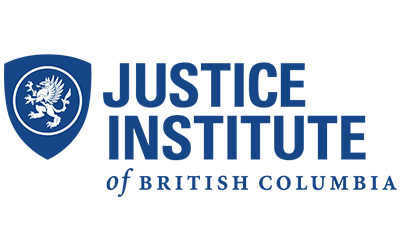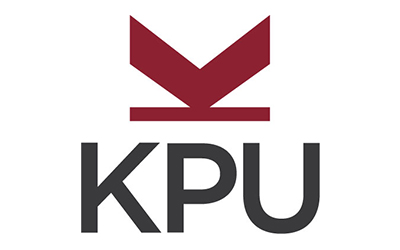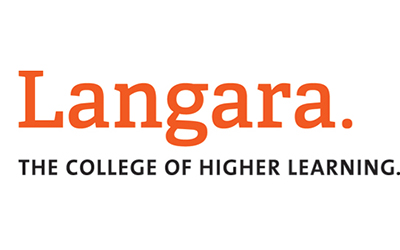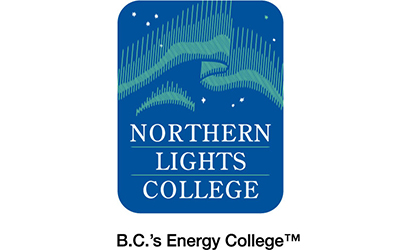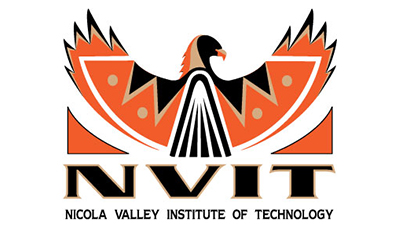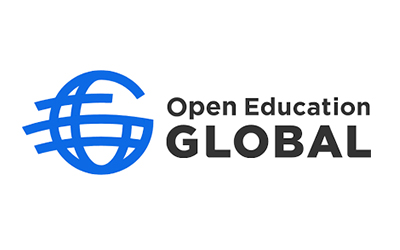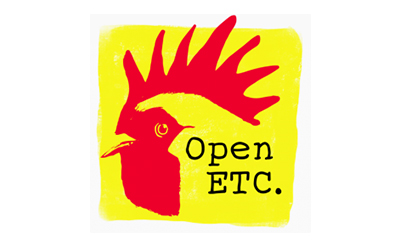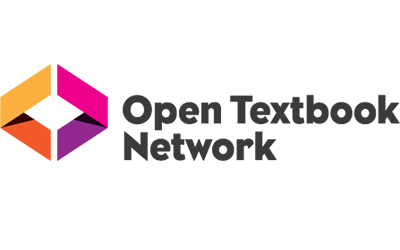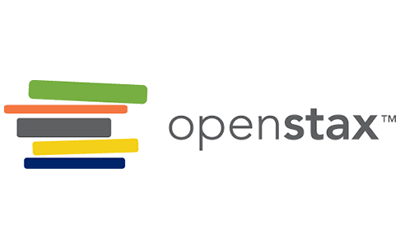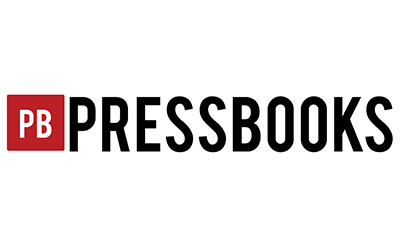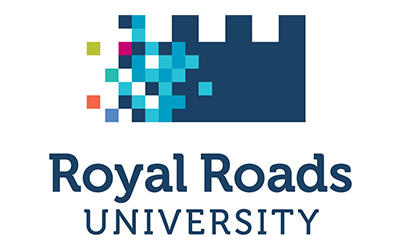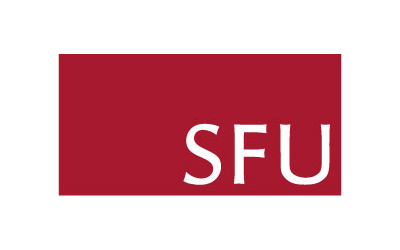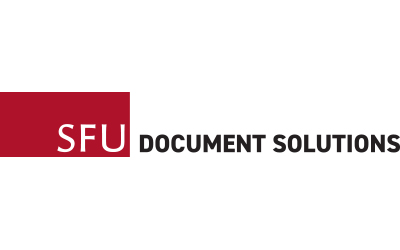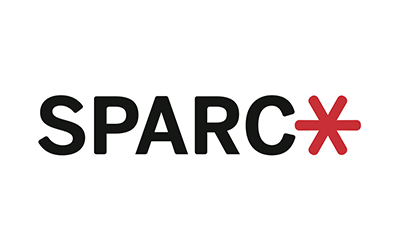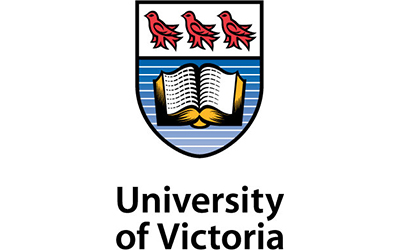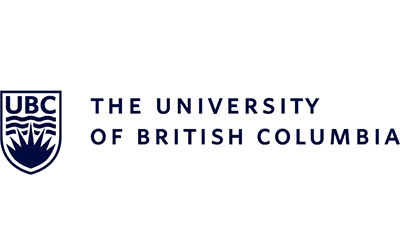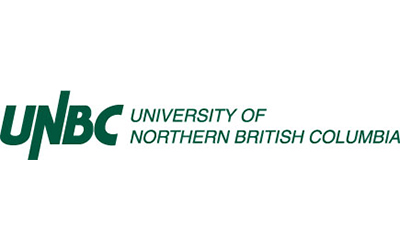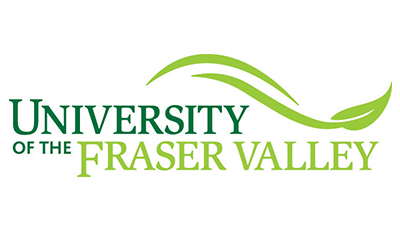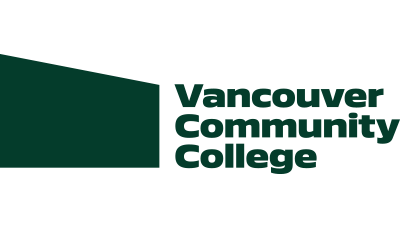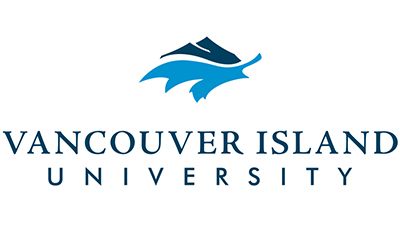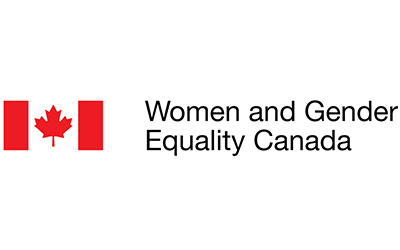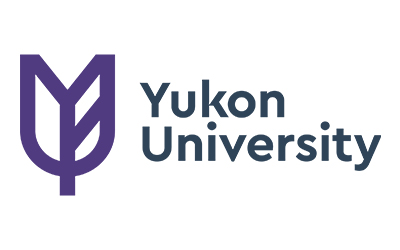About Us
At BCcampus, we collaborate with B.C.’s public post-secondary institutions to enhance teaching and learning across the province.By leading innovative projects, supporting open education, and providing professional development, we help educators create more inclusive, accessible, and effective learning experiences. Aligned with the Ministry of Post-Secondary Education and Future Skills, we promote openness, transparency, and collaboration—saving students millions through open educational resources and reducing barriers to learning for all.


Message from the Steering Committee
As the 2024-25 fiscal year concludes, we are pleased to reflect on the significant impact BCcampus has had on post-secondary education in British Columbia. This year’s achievements underscore BCcampus’ role as a leader in fostering innovation, equity, and collaboration across the sector.
Building on the foundation laid by the inaugural Steering Committee, we’ve focused on aligning BCcampus’ mission and values with the evolving needs of the post-secondary sector, and the priorities of the Ministry of Post-Secondary Education and Future Skills around access and affordability. BCcampus continues to act as a critical connector, creating opportunities that empower educators and improve student outcomes.
This impact report showcases how BCcampus continues to fulfil its mandate to support the province’s post-secondary sector. We look forward to building new opportunities for collaboration and innovation to support a stronger, more equitable education system for all.
Dr. Tannis Morgan
Vancouver Community College, Co-Chair
Dr. Diane Purvey
Kwantlen Polytechnic University, Co-Chair
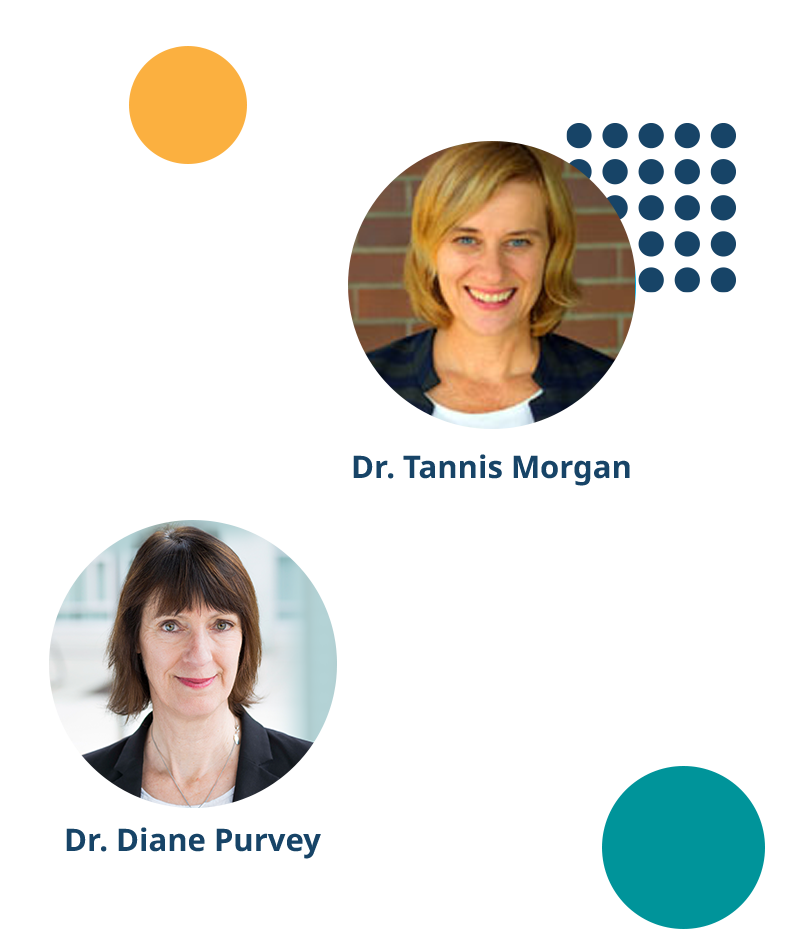
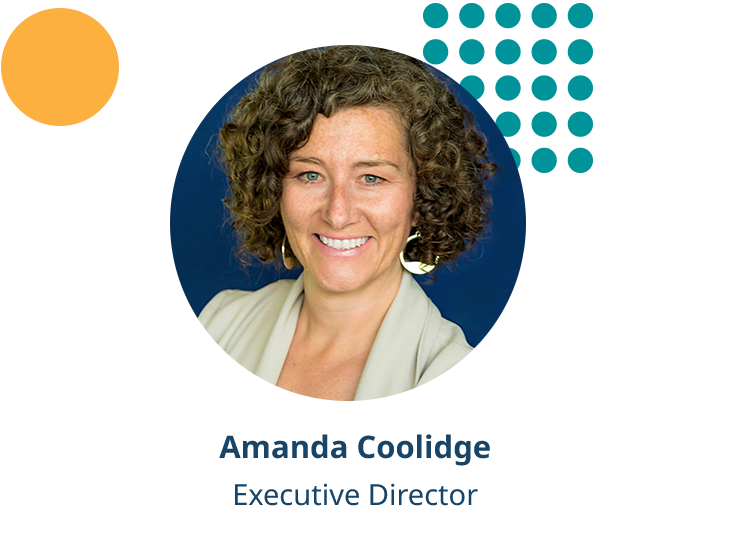
Message from Amanda Coolidge, Executive Director
It is my privilege to introduce BCcampus’ impact report—a milestone that reflects the vital collaborations both within our organization and across the post-secondary community we serve. This report is a testament to the difference we make in fostering innovation, accessibility, and excellence in education across British Columbia.
Guided by our strategic plan, this report highlights the significant strides we have made in four key areas:
Building Relationships & Communities
We create spaces for collaboration and dialogue among educators, administrators, and learners, enabling knowledge sharing and collective growth. From facilitating workshops to hosting conferences, our efforts bring people together to address shared challenges and celebrate collective successes.
Advancing Teaching & Learning Practices
We are dedicated to supporting educators in delivering high-quality, engaging learning experiences. Through professional development opportunities, open education, and strategic projects, we support faculty in adopting and refining effective teaching practices that meet the needs of diverse learners.
Supporting Organizational Excellence
Our work is guided by core values: meaningful truth and reconciliation, collaboration, innovation, openness, accountability, and a human-centred approach that is inclusive, equitable, and anti-racist. These principles shape what we do and how we lead as an organization.
Championing the Digital Learning Strategy
We are proud to lead initiatives that expand access to education through technology. By supporting the adoption of digital tools and resources, we enable institutions to create flexible, accessible learning environments for students geographically, financially, and academically.
This report celebrates the progress we have made and the impact we have on the sector; it also serves as a reminder of the work that lies ahead. Together, we will continue to innovate, collaborate, and champion a more accessible, inclusive, and transformative post-secondary education system in British Columbia.
Cumulative Impact
$40+ million
In Student Savings
347,669
B.C. Students Using Open Textbooks
1,020
Known B.C. Faculty Adopting Open Textbooks
BCcampus Roadshow: Driving Learning and Connection
In the spring of 2024, the BCcampus Regional Roadshow hit the road to take our programs, expertise, and good times directly to post-secondary institutions and communities across the province.
The Roadshow was more than a series of workshops; it was a celebration of teaching and learning and an opportunity to engage, learn, and explore current themes in teaching and learning.
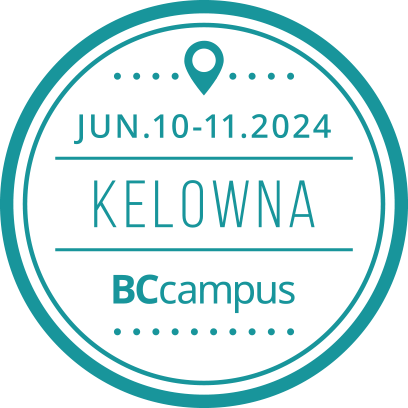
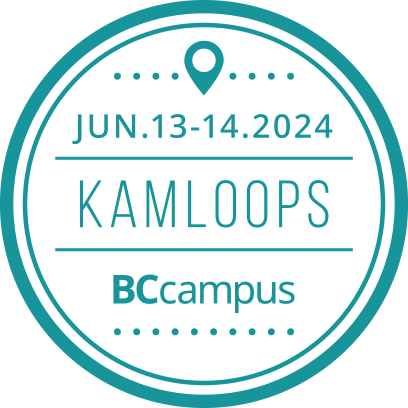
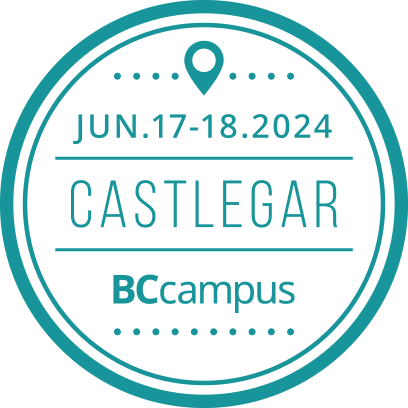
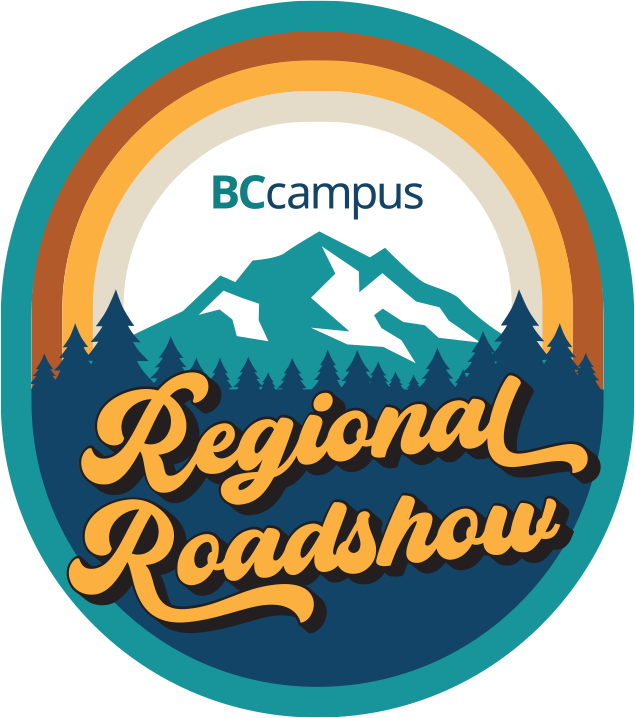
One of the central goals of the Roadshow was to ensure educators in both urban centers and regional areas have an opportunity to connect with colleagues in fun and engaging ways. At each stop on the BCcampus Roadshow, we hosted an unforgettable two days of workshops, sessions, discussions, and socializing.
Designed in collaboration with host institutions, the Roadshow featured sessions on pressing topics in post-secondary education, including generative artificial intelligence, open education, accessibility, and the B.C. Digital Literacy Framework. Each workshop and session was designed to fuel participants’ curiosities and drive their growth as educators and facilitators.
“Having the BCcampus Roadshow team visit TRU was a welcome boost to our thinking and to our spirit. The sessions on OER, accessibility, and digital literacies were expertly facilitated, highly informative, and very well-received. We continue to incorporate what we learned into our own offerings and our practice. As ever, BCcampus modeled creative and innovative thinking, inclusiveness, a spirit of fun and inspiring team energy. The event has had an ongoing impact on our team and on our university community.”
- Brian Lamb, Director, Learning Technology & Innovation,
Thompson Rivers University
The Roadshow was a powerful reminder of the value of connection, collaboration, and community in post-secondary education.
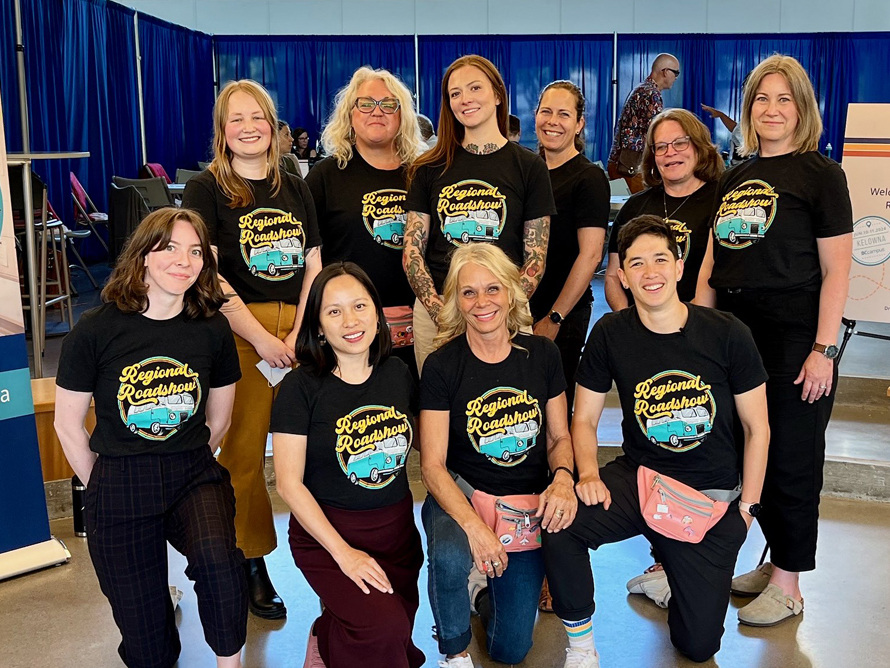
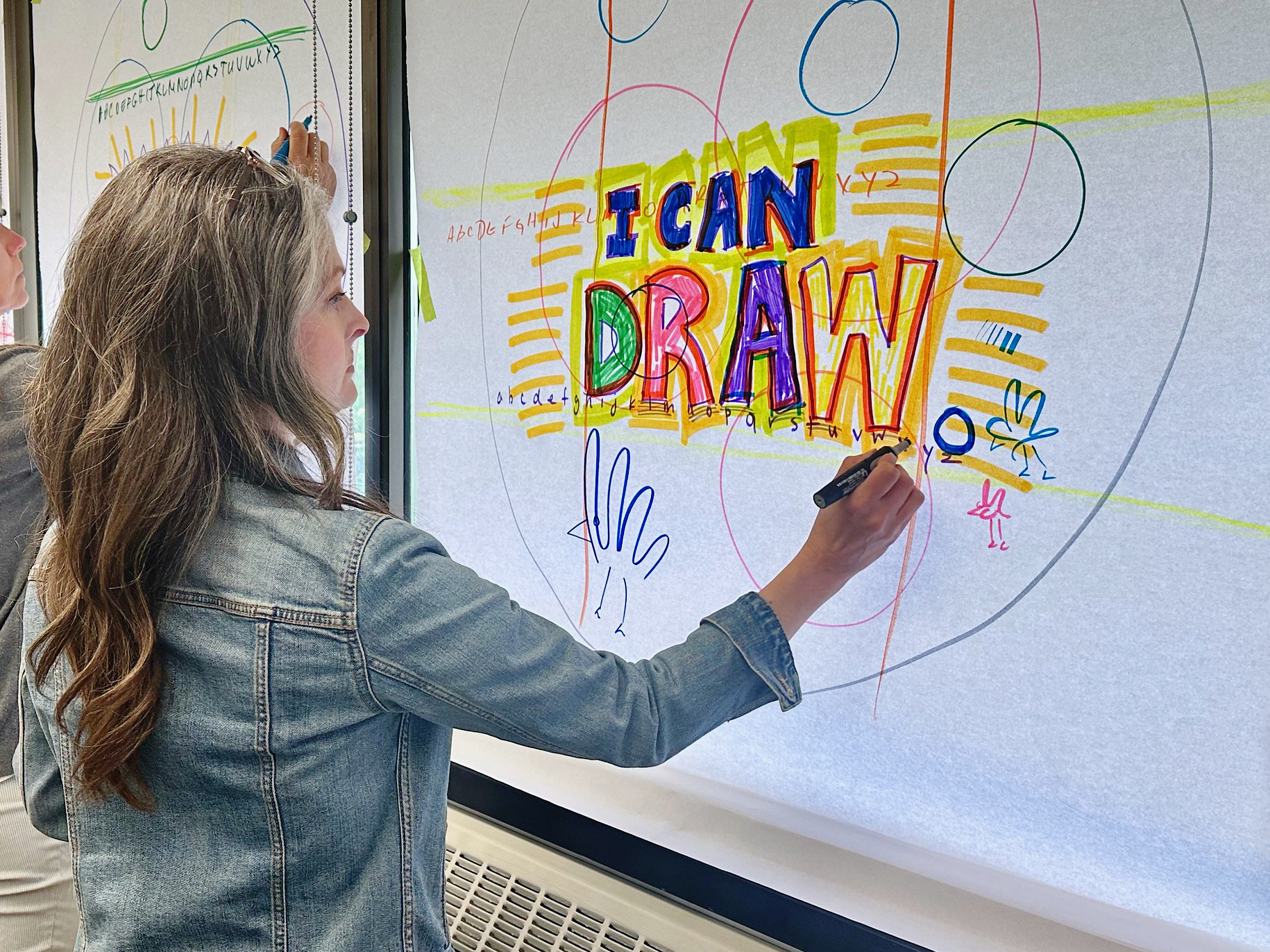
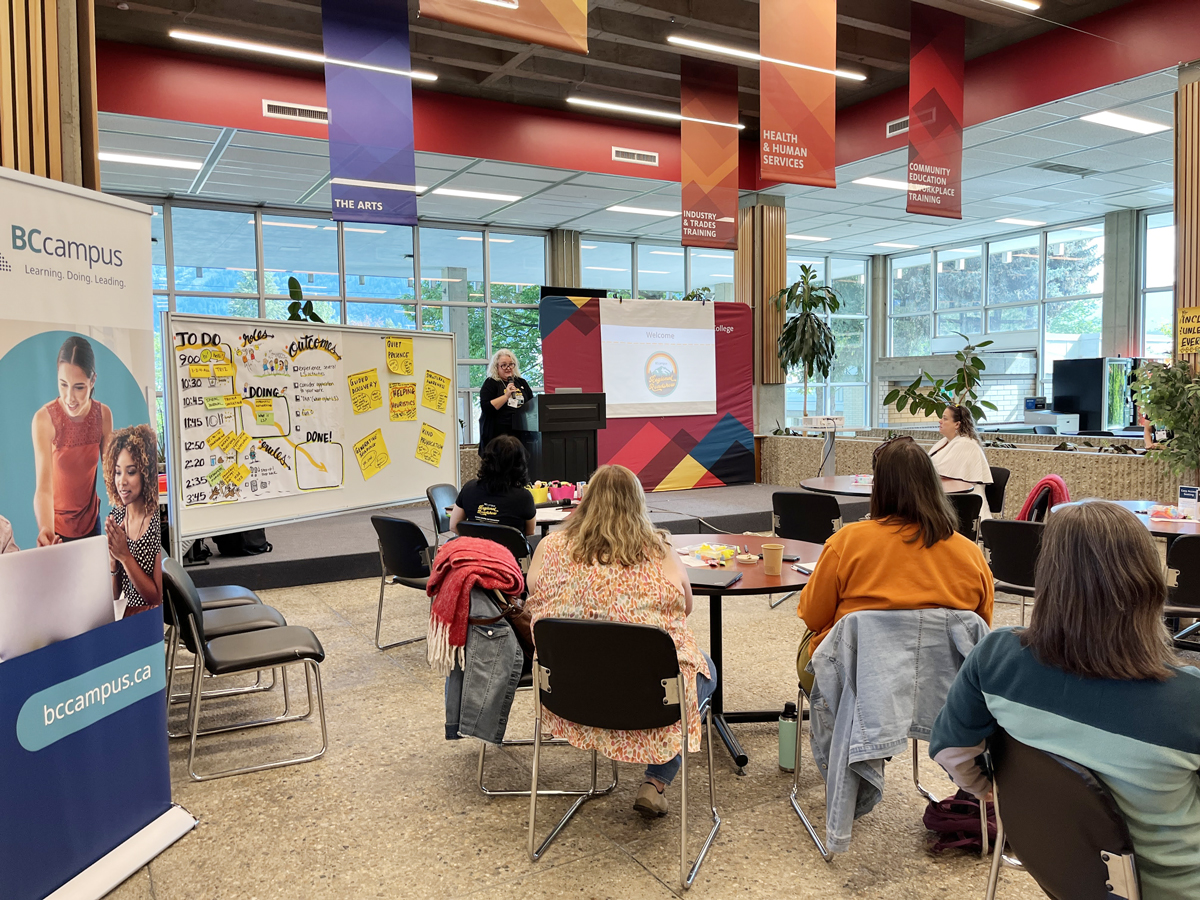
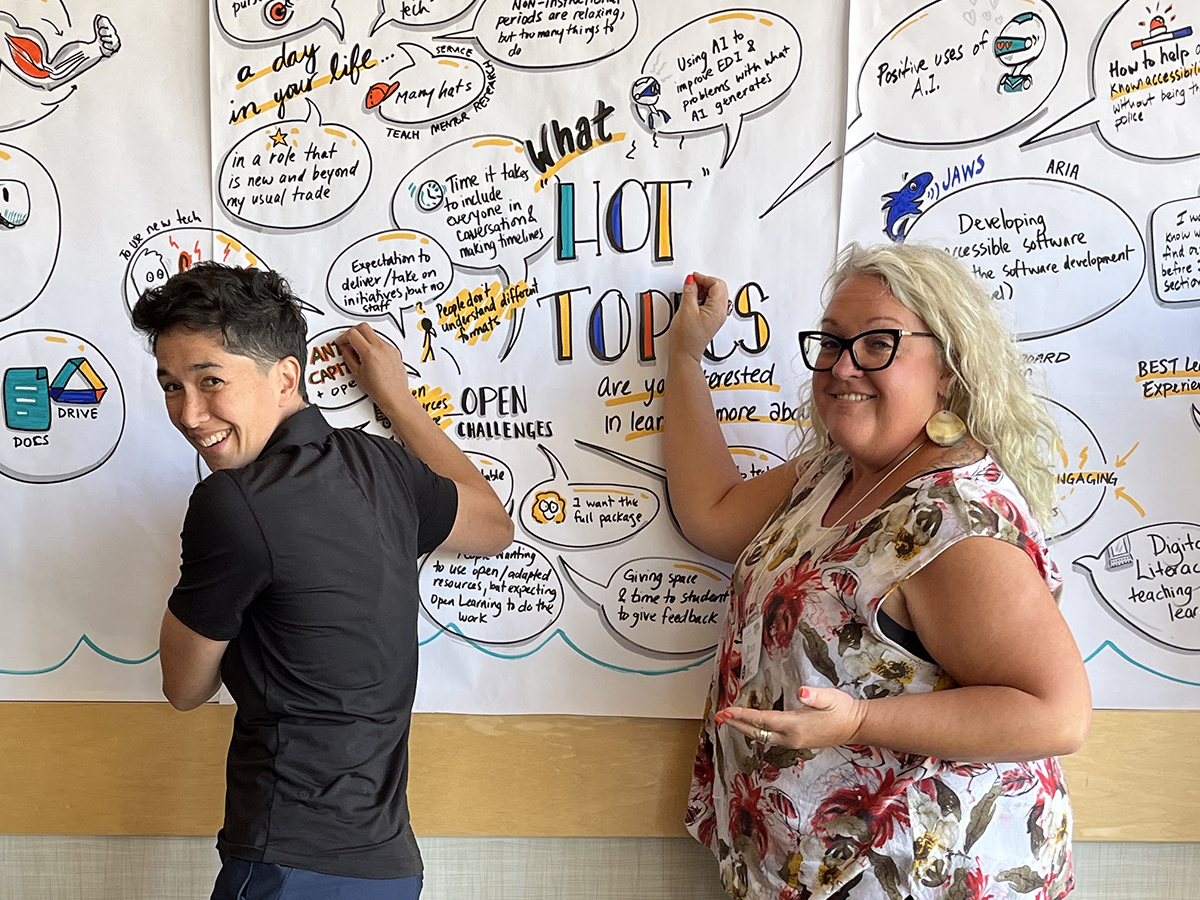
Creating Safer Campuses: The ISV Project
In Spring 2022, the province partnered with BCcampus to develop the Intersectional Sexualized Violence (ISV) project, creating resources tailored to the unique experiences of diverse student groups, including graduate, international, and Indigenous students. The project also introduced foundational training on technology-facilitated sexualized violence—an urgent issue in post-secondary education. It was funded through Women and Gender Equality (WAGE) Canada’s Women’s Program and in partnership with the Ministry of Post-Secondary Education and Future Skills.
Grounded in trauma-informed practices, the ISV resources offer open, synchronous, and asynchronous learning opportunities, fostering personal growth and understanding. This flexible approach allows learners to engage at their own pace, exploring the topics most relevant to their experiences. A strength-based framework further empowers individuals, emphasizing their abilities and confidence-building throughout the learning process.
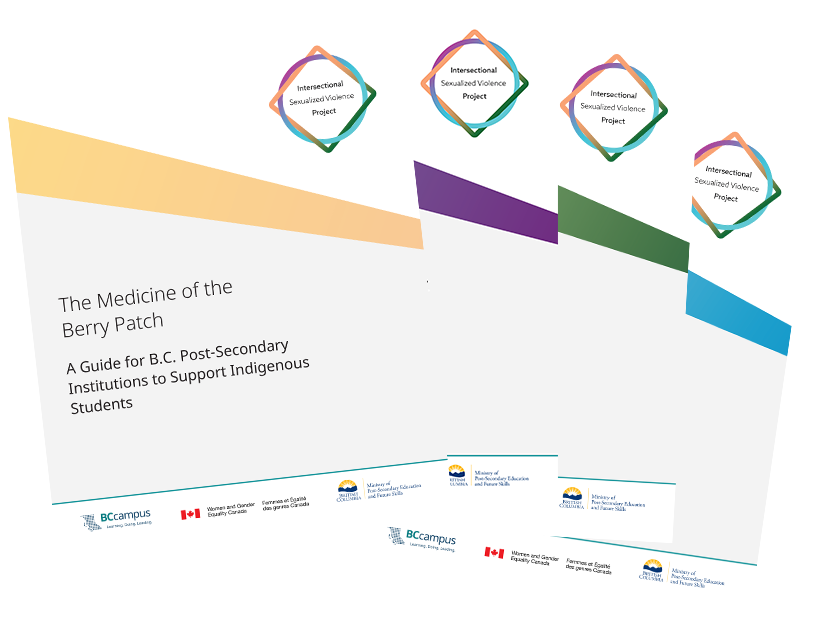
"People need to go beyond, deepen their understanding, and develop relationships with the land and the people they’re supporting. You’re never going to shift a person’s perspective if they only sit in boardrooms or classrooms."
- Jewell Gillies, author of The Medicine of the Berry Patch video series
"The resource supports students by delving into nuances and providing clarity. There is definitely a need for this kind of learning; it would benefit all students, not simply graduate students."
- Belinda Karsen, Educational Specialist in the Sexual Violence Support and Prevention Office, Simon Fraser University
"The validated resources allowed NIC to equip our facilitators with the guides and support materials needed to deliver content that is both relevant and impactful, ensuring best practices in meeting student needs."
- Mez Jiwaji, Associate Director of Student Life, North Island College
By prioritizing deep engagement, reflection, and adaptability, the ISV project helps post-secondary institutions foster safer learning environments—ensuring all students have access to the education and support they deserve.
1,169
Total Visitors to ISV Resources
Strengthening Health Care Education: The Health Care Assistant Curriculum Supplement
The Health Care Assistant (HCA) Program Provincial Curriculum is the foundation for HCA training across British Columbia, establishing learning outcomes, course requirements, and instructional guidelines for all recognized HCAs in the province.
In 2023, BCcampus collaborated with the Ministry of Post-Secondary Education and Future Skills, the Ministry of Health, and other sector partners to update the HCA curriculum, aligning it with the latest health care regulations, best practices, and workforce needs.
In 2024, BCcampus further developed the Health Care Assistant Program Supplement to the Provincial Curriculum to provide additional guidance, resources, and instructional support, helping educators translate complex regulatory updates into clear, practical lessons for students.
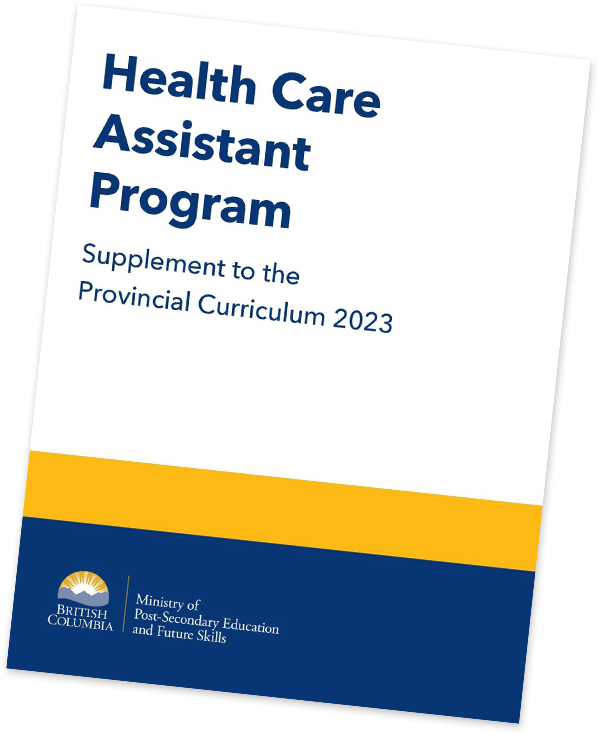
“One of the biggest benefits of working with current faculty was that they could pinpoint exactly what was needed. Since they were actively teaching, they could say, ‘This would be useful,’ and we were able to create it.”
“This responsiveness to faculty feedback, combined with sector-wide collaboration, has resulted in a stronger, more cohesive educational framework [...] The process has not only improved teaching resources but has also contributed to a more connected and regulated sector overall.”
- Lisa Beveridge, Department Head of Continuing Care
Vancouver Community College
Through facilitated discussions, educators had a direct voice in shaping curriculum materials. Faculty were able to ask critical questions and refine instructional language to make regulatory updates both accessible and practical for students.
The project’s success was shaped by the strong communication among educators, policymakers, and provincial health authorities.
6,983
Total Visitors to the HCA Supplement
Adapting Introduction to Psychology for Equity: A Collaborative Approach to Inclusive Education
In 2023, BCcampus launched a project to adapt Introduction to Psychology – 1st Canadian Edition with a focus on diversity, equity, and inclusion. Originally adapted in 2014 for a Canadian audience, the textbook has been widely employed.
Appearing in
200+
Psychology Courses in B.C.
$810,100
in Student Savings
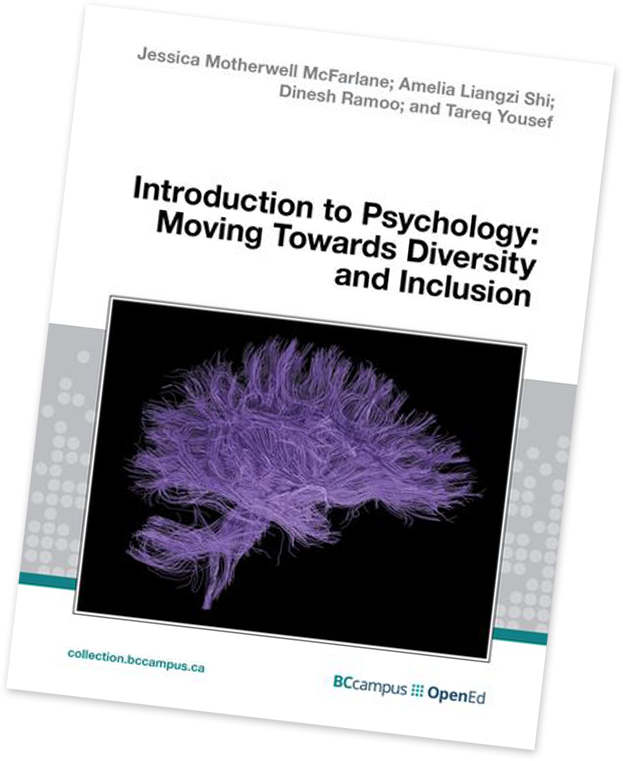
By 2022, the resource needed updating to reflect new research and address equity gaps. With funding from the William and Flora Hewlett Foundation, BCcampus began the work to create a more inclusive, representative edition.
Rather than modifying a single textbook, the team remixed content from five open textbooks and original material. A diverse, cross-institutional team of 10 contributors—including authors, editors, project managers, and illustrators—collaborated with expert advisors offering insights on Indigenous knowledges, inclusive curriculum design, and equity. Student voices were prioritized with students providing feedback on early drafts; the illustrations were also created by a student.
"When I was speaking with a counselling colleague about consent, I mentioned the ‘FRIES’ (freely given, reversible, informed, enthusiastic, and specific) model and was able to give her the link to our Gender and Sexuality chapter, which she passed along to a colleague who needed a resource. She also said all her young adult family members would feel validated reading the LGBTQIA2S+ affirming chapter."
- Jessica Motherwell McFarlane, lead author
The final product, Introduction to Psychology: Moving Towards Diversity and Inclusion, is now freely available in the B.C. Open Collection. This project stands as a testament to the power of collaboration in creating open educational resources that center equity and diverse representation in learning.
62
Online Events
8
In-Person Events
3,369
Event Attendees
Bridging Digital Literacy and Indigenous Ways of Knowing
This summer, BCcampus launched Indigenous Digital Literacies, a curated collection of openly licensed learning materials designed to integrate Indigenous perspectives into digital literacy education within the post-secondary sector. This initiative supports B.C.’s Post-Secondary Digital Learning Strategy, emphasizing skills and competencies for working with First Nations, Métis, and Inuit learners while enhancing the learning experiences of all students in digital environments.
For post-secondary institutions, these resources offer a transformative approach to digital education by embedding Indigenous ways of knowing into curriculum design, teaching practices, and student engagement. Developed by Indigenous educators with expertise in adult learning, the modules ensure educators are equipped to create inclusive, culturally responsive digital learning spaces that respect Indigenous protocols and knowledge systems.
Co-authors Connie Strayer and Robyn Grebliunas aimed to centre Indigenous ways of knowing and being in their work.
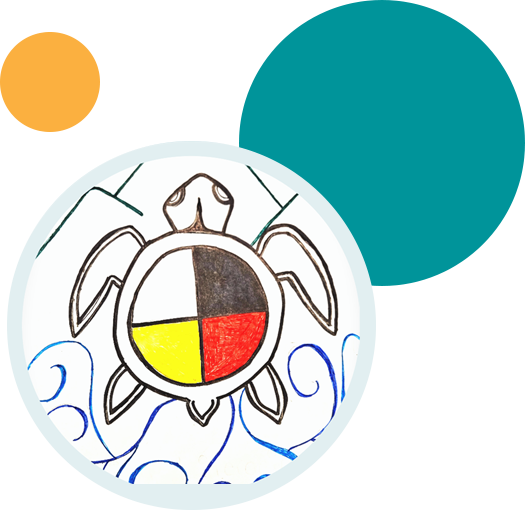
“Best practices in Indigenous education are relevant to everyone. Educators will be able to use this information to the benefit of all their learners,”
– Robyn Grebliunas, co-author
The learning modules align with the eight competencies of the Digital Literacy Framework while addressing key Indigenous perspectives, such as data sovereignty, governance structures, and the role of Elders and knowledge-keepers. The foundational module on Indigenous governance provides critical context for educators, helping them foster an environment that acknowledges and integrates Indigenous histories and perspectives into their teaching practices.
By incorporating these resources, instructors can actively participate in reconciliation efforts, fostering a learning environment that values Indigenous perspectives as integral to education. This initiative not only enriches digital literacy education but also strengthens institutional commitments to decolonization, ensuring meaningful and lasting inclusion of Indigenous knowledge in higher education.
Artificial Intelligence and Education
As artificial intelligence (AI) transforms education, BCcampus is helping educators navigate its challenges and opportunities through resource sharing, professional development, and best practices.
GenAI in Teaching and Learning Toolkit
The GenAI in Teaching and Learning Toolkit is an open educational resource designed to help educators integrate generative AI into teaching. It covers foundational concepts, ethical considerations, and practical implications with a flexible, reflective approach.
While offering in-depth resources, it is particularly useful for educators new to AI or hesitant about its adoption. By fostering practical and critical engagement, BCcampus supports educators in making informed, pedagogically aligned decisions.
“70% of students say they are turning to generative AI tools for help rather than their instructors [...] So what is this almost ubiquitous use of generative AI we're seeing mean for our teaching and mean for education?”
- Lucas Wright, Senior Education Consultant,
University of British Columbia
“Generative AI is becoming increasingly ubiquitous in our lives, which has tremendous implications for our digital literacy skills to use generative AI effectively and ethically. It gives us an opportunity to educate learners to develop digital literacy skills by experimenting it.”
- Hajime Kataoka, Director, Online Learning Services, Continuing Studies, University of Victoria
EdTech AI Sandbox Series
The EdTech AI Sandbox Series empowers educators, learning designers, and graduate students to explore and evaluate AI-driven learning technologies. Aligned with the B.C. Post-Secondary Digital Literacy Framework, it promotes curiosity, troubleshooting skills, and thoughtful AI tool selection.
Through hands-on sessions, participants collaborate to test tools, assess teaching applications, and develop integration strategies. Recordings, transcripts and blogposts are available online, ensuring continued access to insights and resources.
West Coast Teaching Awards
BCcampus is a member of the British Columbia Teaching & Learning Council (BCTLC), a community of leaders dedicated to advancing high-quality teaching and learning throughout the province. BCcampus provides financial, administrative, and technical support, helping to sustain initiatives like the West Coast Teaching Excellence Awards.
Established in 2021, the awards celebrate outstanding educators in publicly funded colleges, institutes, and universities across British Columbia and the Yukon. These awards recognize excellence in student engagement and learning, commitment to ongoing improvement of teaching through research and professional development, as well as implementation of any of the 94 Calls to Action from the Truth and Reconciliation Commission of Canada.
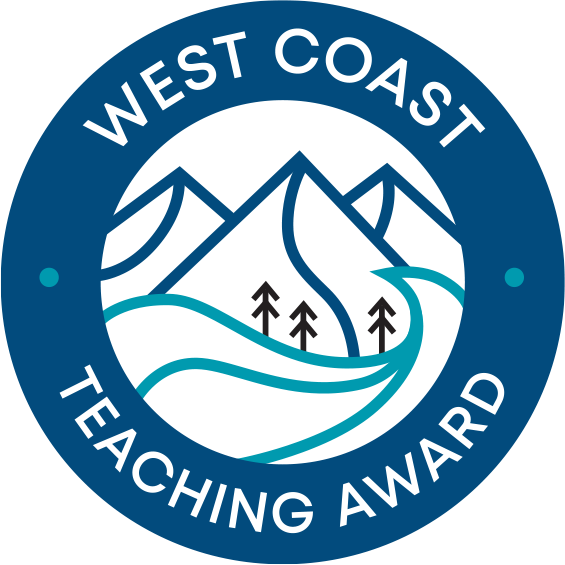
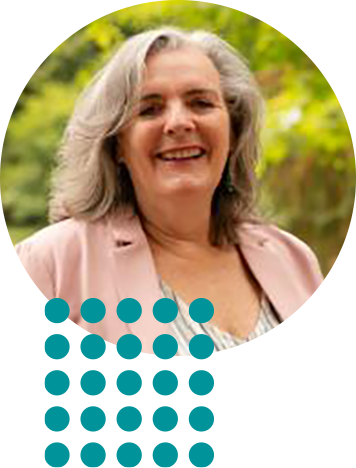
In 2024, the West Coast Teaching Excellence Award was presented to Saskia Stinson from Thompson Rivers University (TRU) and Dr. Will Valley from the University of British Columbia (UBC). Stinson, an advocate for neurodivergent students, co-founded TRU’s Education and Social Work Market, an on-campus social enterprise that provides hands-on learning experiences and prepares students for the workplace. Her work has influenced similar efforts in other post-secondary institutions in British Columbia.

Dr. Valley, an associate professor of teaching in applied biology and Associate Dean of Equity, Decolonization, and Inclusion in UBC’s Faculty of Land and Food Systems, integrates social justice principles into natural sciences and food systems education. His efforts to create equitable and inclusive learning environments have had a lasting impact on both students and the broader community. “It’s an honour to be recognized for my work, but even more so, an honour to be able to support my students on their journey through exploring the principles of EDI,” said Valley.
Strengthening Open Education Through Campus Sponsorships
Open education is a powerful tool for fostering accessibility, inclusion, and innovation in post-secondary learning. In 2024, BCcampus reinforced its commitment by providing Open Education Week sponsorships, funded by a $10,000 grant from the Hewlett Foundation. These sponsorships enabled ten post-secondary institutions to host events that celebrated and advanced open education.
The sponsorships supported a wide range of activities including workshops, panel discussions, strategic planning sessions, and recognition ceremonies.
$10,000
Open Education Week Sponsorships
Nicola Valley Institute of Technology used the sponsorship to highlight the benefits of open education for Indigenous learners.
“We hosted an open learning session to talk about the opportunity to use and adapt resources to focus on Indigenous ways of being, the wisdom of knowledge holders, culture and ceremony. A key piece for NVIT is incorporating storytelling into open learning.”
- Rita Cavaliere, Librarian,
Nicola Valley Institute of Technology
At Simon Fraser University, the sponsorship helped reconnect the campus community around open education. They have since launched a community of practice to build on the momentum created by the sponsorship.
“We saw a need for more opportunities for open education practitioners on campus to connect so people could learn about what was happening on campus and connect to the wider open education space.”
- Hope Power, Teaching and Learning Librarian,
Simon Fraser University
These events showcased best practices in open education and helped cultivate long-term institutional commitments to open education. By reducing costs for students, amplifying diverse voices in educational materials, and fostering a culture of collaboration, open education grants support learning and affordability for students in B.C.
Fostering Connections in Open Education: The B.C. Open Education Community
A small but growing group of educators, librarians, and administrators gather virtually every month to talk about a shared challenge: making open education more accessible, sustainable, and impactful.
The B.C. Open Education Community (BCOEC) is more than just a monthly Zoom call—it’s a space where ideas spark, collaborations take root, and shared struggles find solutions.
Participants discuss goals for advancing open education in their institutions. Some focus on increasing awareness among faculty and leadership, improving how open textbook adoption is tracked or strengthening student engagement in open education initiatives. Others are undertaking efforts to incorporate open education into institutional strategic plans and curriculum development.
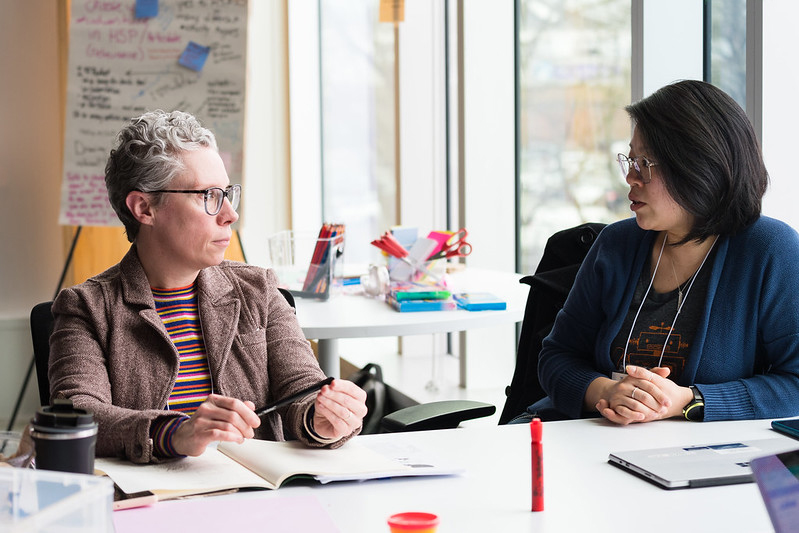
"I am so grateful to BCcampus for taking this idea and running with it. Connecting with open education supporters from across B.C. and beyond has long been a dream of mine. We don't often have this kind of opportunity, even within our own institutions, to build relationships, share challenges, and foster collaborations. I hope this community has a very long life."
- Emily Schudel, Chair/Instructional Designer,
Centre for Excellence in Teaching and Learning, Camosun College
Many institutions face challenges, from securing funding and administrative support, to tracking the impact of zero-textbook-cost courses or encouraging faculty to openly license their materials. Despite these obstacles, the group remains committed to finding solutions.
There is a strong focus on collaboration, with members sharing resources, mentoring colleagues, and co-developing open educational materials. Recognizing and celebrating progress is important, ensuring open education remains a priority in post-secondary institutions across the province. With each BCOEC meeting, participants are not only advocating for open education but actively shaping its future in the post-secondary sector.
Wayi Wah! Building Stronger Education Systems Through Indigenous-Informed Pedagogies

On November 5, 2024, BCcampus, in partnership with Royal Roads University and Deloitte, hosted an in-person workshop featuring Jo Chrona, author of Wayi Wah! Indigenous Pedagogies: An Act for Reconciliation and Anti-Racist Education. Educators, instructional designers, administrators, and curriculum developers from across Vancouver Island gathered to explore ways to integrate Indigenous pedagogies and anti-racist education into post-secondary learning environments.
“Honouring is the best word that comes to my mind when I think about what it means to have an education system reflect Indigenous-informed pedagogies. We are honouring the knowledges that come from Indigenous cultures and creating more responsive systems to meet learners’ diverse needs in our contemporary world.”
- Jo Chrona
The workshop provided a space to confront inequities and systemic racism in education.
"Jo Chrona was amazing, grounding and empowering. The BCcampus team was kind and supportive. BCcampus is pretty amazing with the learning opportunities it provides and its accessibility. Thank you so much for this learning opportunity. So much gratitude for it."
- Event Participant
95
Attendees from 13 Organizations
Following the session, Cowichan Elder Kenneth Elliott led an interpretive walk, offering participants an opportunity to connect with Indigenous perspectives on the land. Drawing from his grandmother’s teachings, Elder Elliott highlighted the forest as a source of food, medicine, and tools, reinforcing the importance of gratitude and stewardship in learning.
Participants left with a renewed commitment to decolonizing education, fostering inclusive learning environments, and advocating for systemic change. The event not only facilitated knowledge exchange but also strengthened connections within B.C.’s post-secondary community, inspiring ongoing collaboration in advancing reconciliation through education.
Digital Learning Strategy: Supporting Innovation in British Columbia
The Digital Learning Strategy (DLS), developed by the Ministry of Post-Secondary Education and Future Skills, aims to enhance digital learning experiences across the province by fostering equity, accessibility, and innovation in post-secondary education. BCcampus supports these goals by providing expertise, resources, and facilitation to foster a collaborative and cohesive approach to digital education in B.C.
Sector Advisory Committee
BCcampus is collaborating with the Sector Advisory Committee (SAC), a diverse group of professional development experts from across B.C., to conduct an environmental scan and gap analysis of professional development offerings. The SAC also reviews new components of the Professional Instructor Diploma Program related to the DLS, with an aim of driving innovation in teaching and learning.
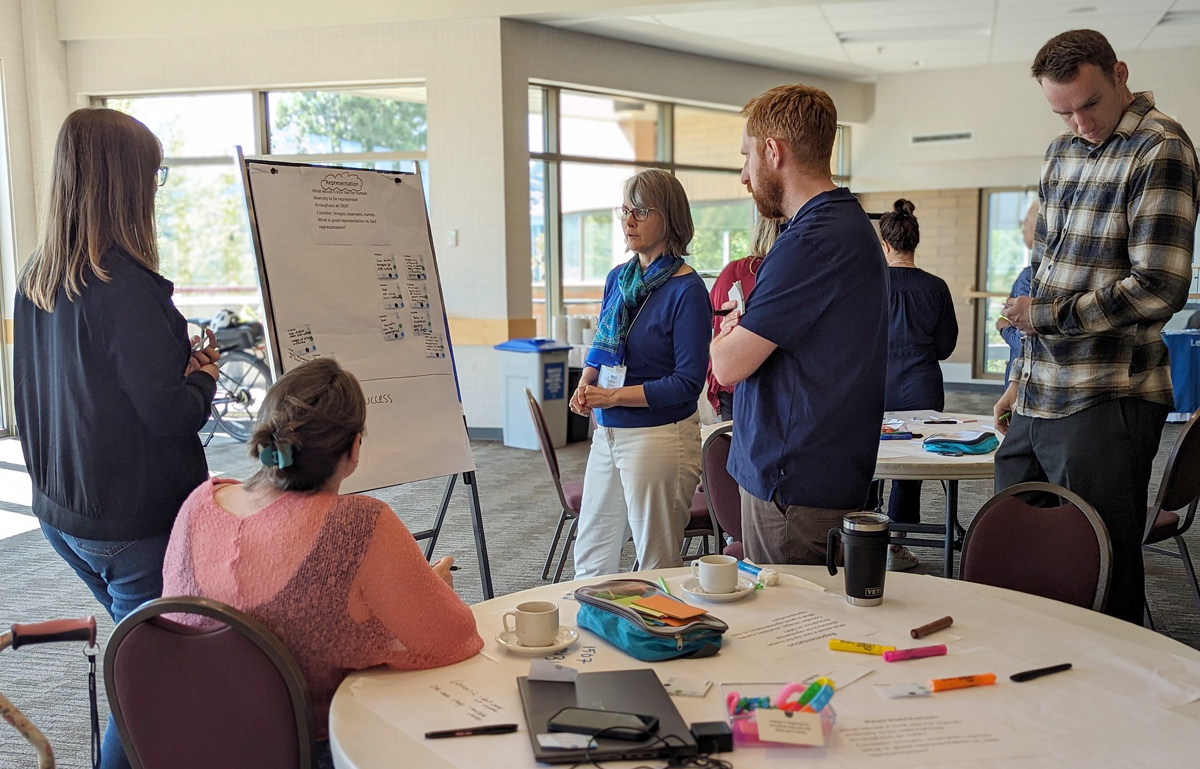

Shared Educational Resources and Technology Initiative
BCcampus is coordinating and chairing the Shared Educational Resources and Technology (SERT) Advisory Committee, which provides guidance on shared and open models for developing, delivering, and sustaining educational technologies and curriculum course materials within B.C.’s post-secondary system. SERT aims to identify and support models for developing, delivering, and sustaining shared and open educational technologies and curriculum, ensuring institutions have access to high-quality resources.
Digital Learning Strategy Forum
BCcampus led the 2024 Digital Learning Strategy Forum with support from the Ministry of Post-Secondary Education and Future Skills. This event brought together educators, institutional leaders, students, and other key interest holders to discuss strategy implementation, foster collaboration, and showcase innovation in digital learning. The forum emphasized actionable outcomes, scaling successful initiatives across institutions, and building a stronger foundation for collective digital learning enhancement.
256
Attendees
25
Organizations Represented
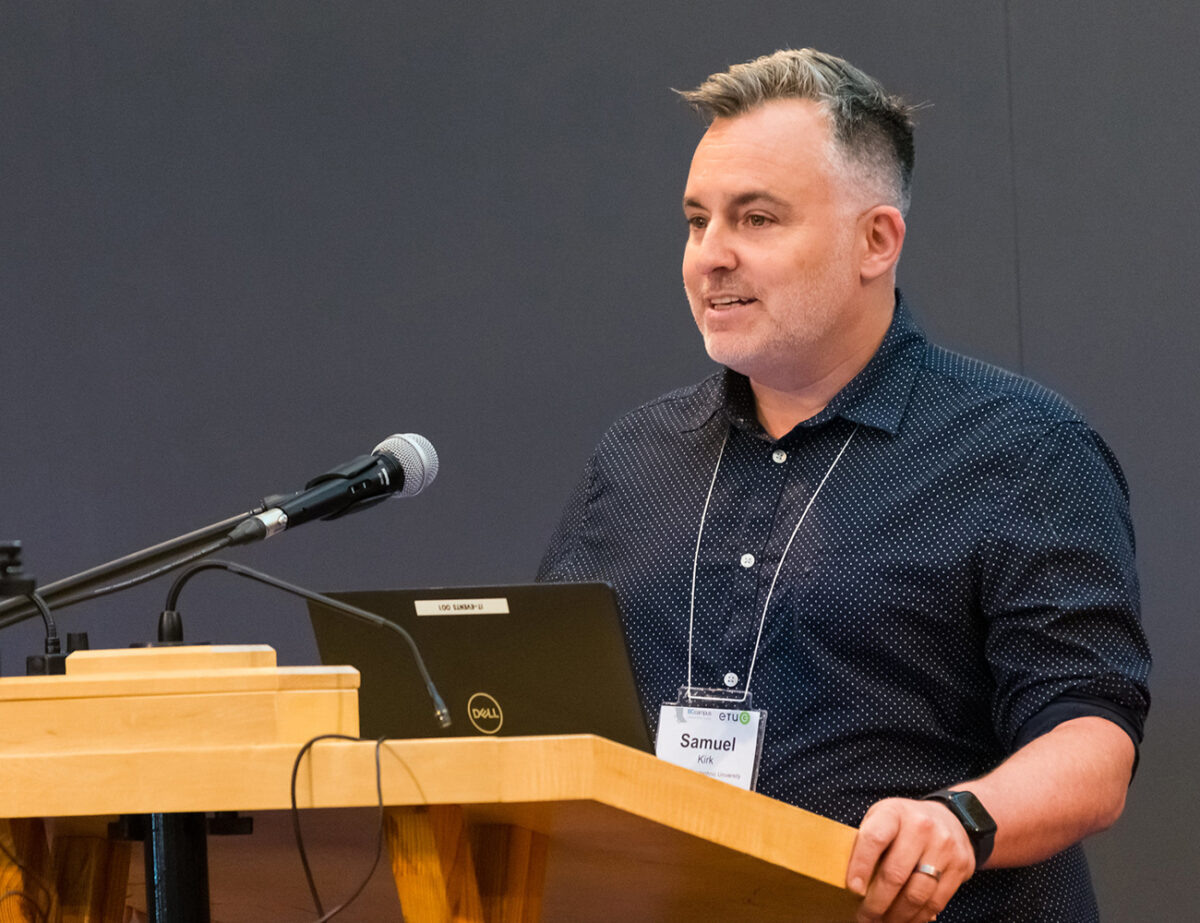
A New Era of Collaboration: How BCcampus is Supporting Sector-Wide Innovation
Over the past year, BCcampus has made key changes to enhance collaboration and efficiency across our organization. One of the most significant steps has been the formation of the Project Management Office (PMO), designed to support collaborative projects with external partners and interest holders.
For many, this change may not be immediately visible, as BCcampus has long played a leading role in facilitating sector-wide collaboration. However, the establishment of the PMO strengthens our ability to respond to the evolving needs of the post-secondary sector.
By clarifying roles and fostering internal collaboration, the PMO ensures new initiatives and resources are developed with greater cohesion and impact. It provides a structured framework for project management, guiding collaborations with clear processes and shared expectations. This refinement allows us to collaborate more effectively, stay aligned on shared goals, and support teams through every stage of the project.
These strengthened internal processes translate into tangible benefits for the broader sector. By supporting resource sharing, the PMO helps institutions maximize capacity, reduce duplication of effort, and leverage collective expertise. This structured project management framework strengthens inter-institutional partnerships and amplifies collaborative initiatives. With a focus on efficiency, accountability, and effectiveness, the PMO ensures projects deliver measurable value to the post-secondary community.
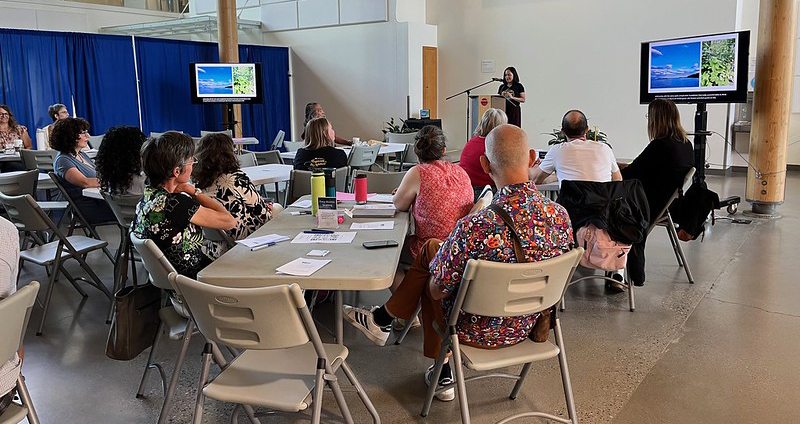
North Island College and Simon Fraser University collaborated with BCcampus on the development and implementation of the Intersectional Sexualized Violence resources.
“Pulling together collectives to share resources, expertise, and a deep passion and commitment to the work, that’s what they do. The output of the work is more powerful because of the leadership and the process.”
- Mez Jiwaji, Associate Director Student Life,
North Island College
“The process allowed cross-institutional sharing and collaborative design with the sector. It helped to develop capacity ensuring wider benefits for all partners.”
- Belinda Karsen, Educational Specialist,
Simon Fraser University
By continuously adapting to emerging needs, BCcampus ensures our skills and expertise remain readily available to institutions. The Project Management Office enhances this impact by streamlining processes, fostering collaboration, and breaking down silos. This approach reinforces our role as a connector, and creates a stronger, innovative and responsive educational ecosystem—one where institutions, educators, and learners can collectively drive meaningful progress.
Supporting Organizational Excellence – Organization Learning, Conferences & Presentations
Conference Presentations
- 2024 BCcampus Roadshow
- 2024 Digital Learning Strategy Forum
- 2024 Open Education Conference
- 2024 UNBC Teaching and Learning Conference
- Association for Learning Technology (ALT-UK) Conference
- BCNet
- Capilano University Teaching & Learning Symposium
- Digital Pedagogy Lab
- Disability Resource Network of B.C.: Navigating Current Trends in Post-Secondary for Diverse Learning Styles
- ETUG Spring & Fall 2024
- Lilly Conference, Austin, Texas
- Open Education Global
- OTESSA Conference
- Society of Teaching and Learning Higher Education (STLHE) Conference
- UBC_EPSE 511: Critical Multicultural Perspectives on Learning with Digital Technologies
- UVIC Let’s Talk About Teaching 2024
External Training
- Fundamentals of OCAP
- Healthy Hybrid Habits
- Leadership Coaching
- Untapped Accessibility
Sector Meetings
- BCCAT - Practical Nursing and Health Care Assistant Articulation
- BCOEC Monthly Meetings
- BC Teaching & Learning Council
- Deans & Directors Meetings
- EDCC Monthly Connections
- ETUG – Educational Technology Users Group
- Ministry of Post-Secondary Education and Future Skills – Micro-credential Advisory Meetings
- Ministry of Post-Secondary Education and Future Skills – Sexualized Violence Advisory Group
- Sector Advisory Committee (SAC)
- SERT Advisory Committee
Internal Learning
- EDI Learning Circle
- Indigenous Learning Circle
- Peer Coaching Circle
Conferences
- Accelerate 2024 (Microcredentialling)
- AI-cadamy: Canada Summit for Post-Secondary Education
- Colleges & Institutes Canada (CICAN) Connection Conference 2024
- Credx (Microcredentialling)
- Technology and Education Seminar & Showcase (TESS 24)
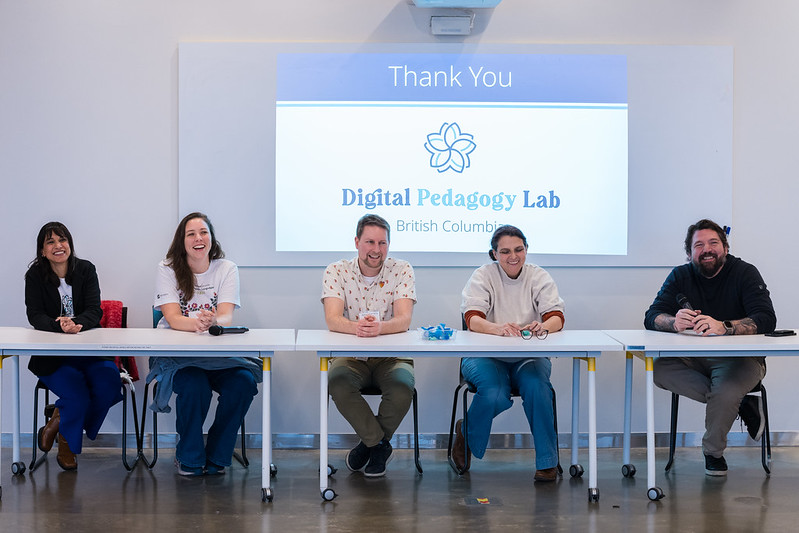
15
Conferences Attended
27
Conference Presentations Given
System Partners
BCcampus facilitates collaboration among British Columbia post-secondary institutions and with other organizations in the sector. We are grateful to all these partners and the contributions they make to further our mission and mandate in the province.


